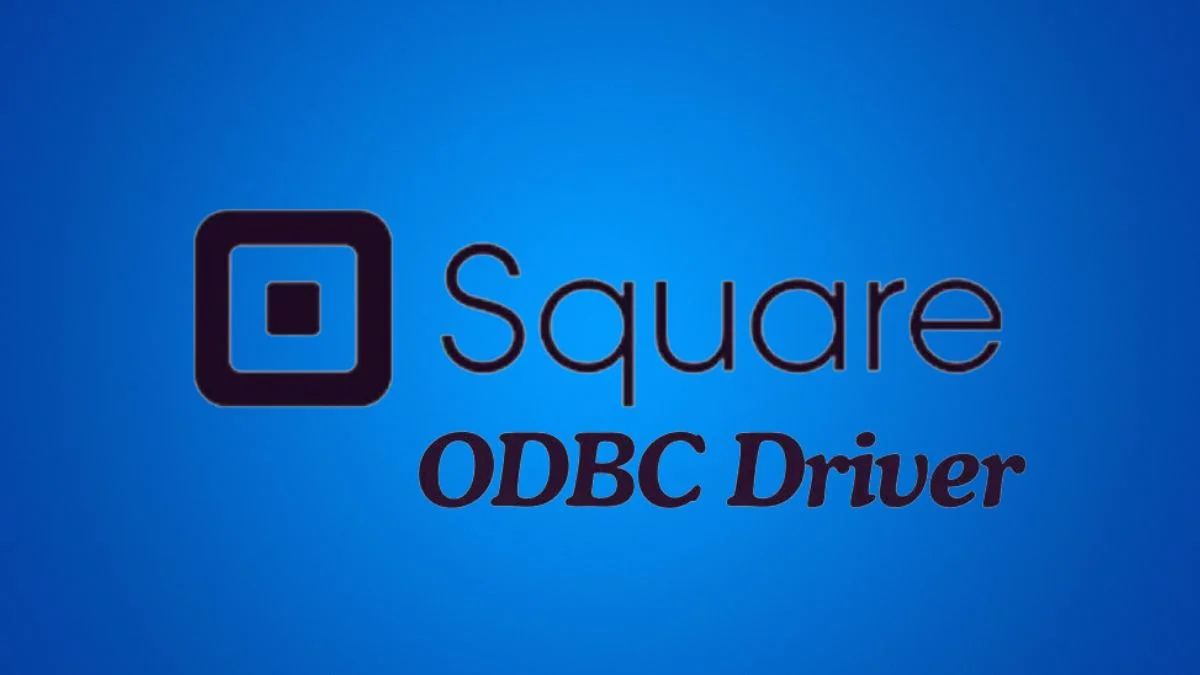In today’s fast-paced business environment, staying ahead of the competition requires the right tools and technologies. For businesses that rely on Square data, having an effective Open Database Connectivity (ODBC) driver can significantly impact efficiency and data accessibility. However, finding the right alternative to the Square ODBC driver can be a daunting task. In this blog post, we’ll explore various alternatives that can help you optimize your business processes and improve productivity. Whether you’re a small startup or a large enterprise, these solutions offer a range of features and benefits to suit your needs.
Understanding the Role of ODBC Drivers
To fully appreciate the significance of Square ODBC Driver, it’s essential to understand their role in data management. ODBC drivers serve as a bridge between your application and databases, enabling seamless data exchange. They allow you to access and manipulate data from various sources, providing the foundation for data-driven decision-making. When it comes to Square data, having a reliable ODBC driver ensures your business can harness the power of its data efficiently.
Why Consider Alternatives to the Square ODBC Driver?
While the Square ODBC driver offers a range of features, there are several reasons why businesses might seek alternatives. Compatibility issues, limited functionality, or specific integration requirements can prompt the search for alternative solutions. By exploring different options, you can find a driver that aligns with your business’s unique needs. This exploration can also lead to discovering additional features or improvements that enhance your overall data management strategy.
Evaluating Key Factors in Choosing an ODBC Driver
When choosing an ODBC driver alternative, several key factors should guide your decision-making process. First and foremost, consider compatibility with your existing systems and applications. The driver should seamlessly integrate with your current infrastructure to avoid disruptions. Additionally, assess the driver’s performance, reliability, and support services. A high-performing driver will ensure smooth data exchanges, while good support can provide timely assistance when needed.
Leading ODBC Driver Alternatives for Square Data
- DataDirect Connect
DataDirect Connect is an excellent alternative to the Square ODBC driver, known for its speed and reliability. It offers broad compatibility with various databases and platforms, making it a versatile choice for businesses of all sizes. With DataDirect Connect, you can achieve faster data access and improved performance, enhancing your overall operational efficiency.
- Devart ODBC Driver
Devart’s ODBC driver is another strong contender, offering robust functionality and ease of use. It’s designed to provide seamless connectivity to a wide range of databases, ensuring you can access your Square data effortlessly. The driver supports advanced data manipulation features, empowering your business to make informed decisions based on real-time insights.
- CData ODBC Driver
CData’s ODBC driver is well-regarded for its flexibility and comprehensive feature set. It enables you to connect to Square data and other sources with ease, facilitating data integration across your organization. CData’s driver also offers extensive customization options, allowing you to tailor its functionality to meet specific business requirements.
Benefits of Using Alternative ODBC Drivers
Choosing the right ODBC driver alternative can bring a host of benefits to your business. Improved data access speeds and enhanced performance can lead to quicker decision-making and increased productivity. Additionally, many alternative drivers offer advanced features not typically found in standard drivers, giving your business a competitive edge. By leveraging these capabilities, you can optimize your data management processes and drive business growth.
Ensuring Seamless Integration with Your Systems
One of the primary concerns when implementing a new ODBC driver is ensuring seamless integration with your existing systems. To achieve this, it’s crucial to conduct thorough testing and validation before fully transitioning to a new driver. Ensure that all necessary configurations are in place and that the driver interacts smoothly with your applications and databases. Properly planning the integration process will minimize potential disruptions and maintain business continuity.
Exploring Customization Options for Enhanced Functionality
Many alternative ODBC drivers offer customization options that allow you to tailor their functionality to suit your specific needs. By customizing the driver, you can optimize its performance, automate repetitive tasks, and enhance its capabilities. Take advantage of these options to align the driver’s features with your business objectives, making it a powerful tool for data management and analysis.
Overcoming Common Challenges in Transitioning ODBC Drivers
Transitioning to a new ODBC driver can present certain challenges, such as compatibility issues, data migration complexities, and user training requirements. To overcome these challenges, it’s essential to plan the transition carefully. Conduct a comprehensive assessment of your current systems and processes, identify potential roadblocks, and develop a detailed implementation strategy. Engaging with knowledgeable experts and providing adequate training to your team will ensure a smooth transition.
Leveraging Advanced Features for Better Data Management
Alternative ODBC drivers often come equipped with advanced features that can significantly enhance data management capabilities. These features may include data caching, connection pooling, and query optimization, among others. By leveraging these advanced functionalities, you can streamline data processing, reduce latency, and improve overall system performance. Explore the possibilities offered by your chosen driver to unlock its full potential and maximize the value of your data.
Real-World Success Stories with ODBC Driver Alternatives
To illustrate the impact of using alternative ODBC drivers, consider real-world success stories from businesses that have made the switch. For instance, a retail company was able to reduce data retrieval times by 40% after implementing a new ODBC driver. This improvement enabled them to respond to customer inquiries more quickly, resulting in increased customer satisfaction and loyalty. Such success stories highlight the tangible benefits that alternative drivers can bring to your organization.
Making an Informed Decision for Your Business
Ultimately, selecting the right ODBC driver alternative for your business requires careful consideration and evaluation. Take into account your specific needs, budget, and long-term goals. Research different drivers, read customer reviews, and consult with industry experts to gather valuable insights. By making an informed decision, you can ensure that your chosen driver aligns with your business objectives and contributes to your success.
Conclusion
In conclusion, exploring Square ODBC driver alternatives can open up new possibilities for your business. By choosing the right driver, you can enhance data management processes, improve performance, and achieve greater operational efficiency. Remember to consider compatibility, performance, and support when evaluating alternatives. With careful planning and implementation, you can seamlessly transition to a new ODBC driver and unlock the full potential of your Square data. For further assistance and guidance, consider reaching out to industry experts who can provide valuable insights and support in optimizing your data connectivity solutions.
FAQs
What is an ODBC driver?
An ODBC (Open Database Connectivity) driver is a software interface that allows applications to access data from various database management systems using a standard set of SQL commands. It provides a universal way to connect to databases, offering flexibility and compatibility across different platforms and applications.
Why should I consider using an alternative ODBC driver?
Using an alternative ODBC driver can offer several advantages, such as improved performance, enhanced features, and better integration capabilities. If your current driver lacks certain functionalities or doesn’t meet your performance expectations, exploring alternatives can lead to more efficient data management processes and a competitive edge.
How do I ensure compatibility when switching ODBC drivers?
To ensure compatibility, conduct thorough testing and validation in a controlled environment before transitioning fully. Check that the new driver supports all necessary configurations and interacts smoothly with your applications and databases. Addressing compatibility concerns upfront can prevent disruptions and maintain business continuity.
What are the potential challenges in transitioning to a new ODBC driver?
Common challenges include compatibility issues with existing systems, data migration complexities, and the need for user training. Mitigating these challenges requires careful planning, comprehensive assessments of current systems, and a detailed implementation strategy. Engaging experts and providing training can facilitate a smoother transition.
How can I leverage advanced features of an ODBC driver?
Advanced features, such as data caching and query optimization, can significantly enhance data management capabilities. To leverage these features, familiarize yourself with the driver’s functionality, customize it according to your needs, and integrate its advanced technical components to optimize performance and streamline operations.







Leave a Reply